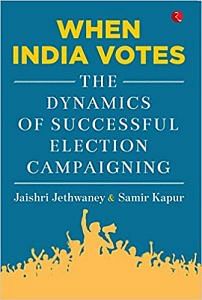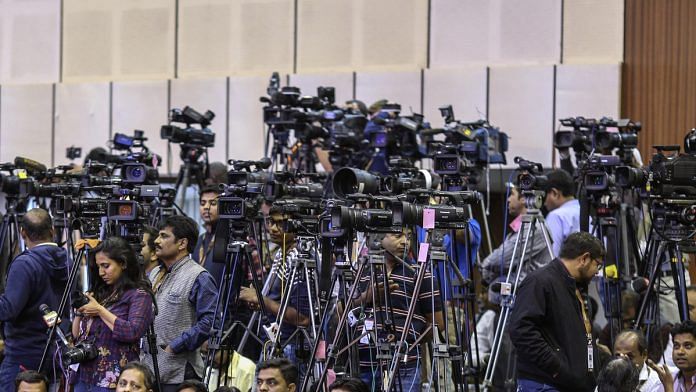Elections in democracies are organized with a lot of fanfare and media coverage. There has been a lot of Americanization of elections in many democracies, especially in the developing ones. Scholars have spoken of the tremendous influence of the American style of elections in India and Pakistan over a period of time, especially with the proliferation of news channels. In the sixteenth parliamentary election in India, the campaigning style of Modi was reminiscent of the US presidential style of campaigning.
An election also means a lot of expenditure by political parties and candidates on media publicity, which results in revenue earned by media houses. Who funds the elections is an open secret, but nothing much is written about this aspect in the media. The reason is not far to seek—it is because media happens to be the biggest beneficiary of ad spends during election times.
The last few years in India have witnessed public debate on ‘paid media’ coverage by some candidates across various political parties during elections. When paid news becomes the practice, media objectivity obviously takes a back seat.
In a meeting of the Editors’ Guild in December 2009, the issue of paid news was deliberated upon by members. Sardesai, the president, and Coomi Kapoor, the secretary, sent a signed letter to the member publications ‘asking for pledges that his/her publication/TV channel would not carry any paid news, as the practice violates and undermines the principles of free and fair journalism’.
One of the cases that received public attention was when the ECI, in its landmark order, disqualified a sitting MLA, Umlesh Yadav, from Bisauli, UP, for three years under Section 10-A of the Representation of People’s Act, 1951, for failing to provide a ‘true and correct account’ of her election expenses. She was said to have spent money on ‘advertisements dressed as news’ in two Hindi newspapers—Dainik Jagran and Amar Ujala—during the 2007 elections. The case came to the ECI after the PCI adjudicated on a complaint from a losing candidate against the two newspapers for being ‘guilty of ethical violations’. In a similar case, the former chief minister of Maharashtra, Ashok Chavan, challenged the ECI’s jurisdiction in probing his 2009 poll expenses. The High Court affirmed the ECI’s power to do so. In its comment on the ECI’s order, The Hindu wrote, ‘The ECI deserves the highest praise for functioning without fear or favour as the upstanding institution of Indian democracy that it is. The question does pop up, though: What about the newspapers and television channels that enable “defrauding the electorate”?’
In a scathing criticism of the media in Maharashtra around its assembly elections in 2011, development writer P. Sainath in his opinion piece “The Medium, Message and the Money” in The Hindu commented that while not all sections of the media could be criticized, quite a few did charge for news from parties and candidates. If there was no money, there was no news. To quote him,
The Assembly elections saw the culture of ‘coverage packages’ explode across the State. In many cases, a candidate just had to pay for almost any coverage at all. Issues didn’t come into it. No money, no news. This effectively shut out smaller parties and independent voices with low assets and resources. It also misled viewers and readers by denying them any mention of the real issues some of these smaller forces raised.
The piece also talked about candidates complaining of ‘extortion’ by media houses. Sainath rued the disheartening fact that it was not the small regional newspapers or small channels that did this openly, but the powerful ones. Candidates complained of ‘exhortation’ but to no avail.
 This excerpt from When India Votes has been published with permission from Rupa Publications.
This excerpt from When India Votes has been published with permission from Rupa Publications.



